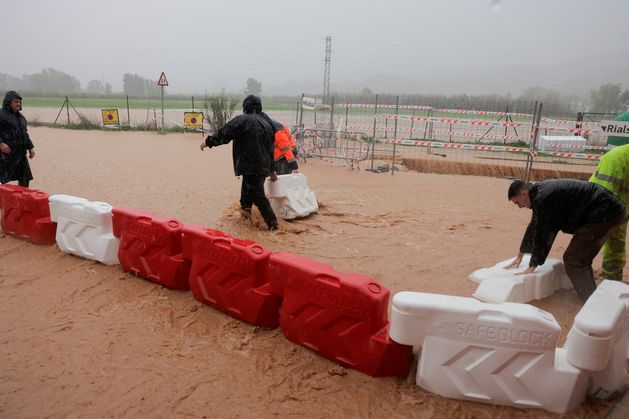Bali Eruptions: Volcanic Activity Disrupts Flights Amid Tourist Recovery
Bali has recently faced a surge of volcanic activity, with Mount Lewotobi Laki-Laki erupting more than a dozen times over the past two weeks. This relentless turmoil has tragically claimed the lives of at least nine people and compelled officials to evacuate thousands from the vicinity. As travel begins to resume, millions are left to wonder about the impact on both the local economy and international tourism.
Volcanic Eruptions Continue
As of early Thursday morning, residents and travelers faced yet another eruption from Lewotobi, creating a thick ash column and visible lava flows. The volcanology agency confirmed that volcanic ash is being propelled away from Bali’s airport, opening a small pathway for recovery. Ahmad Syaugi Shahab, the general manager of the airport, reported that while 32 international flights were canceled, an impressive 180 were still scheduled, reflecting a tentative return to normalcy.
In a recent statement, Qantas Group announced that both Qantas and Jetstar were resuming their services to Bali due to "improved" conditions. "We will continue to monitor the changing conditions and volcanic activity," they assured travelers. This announcement is a welcome sign for those eager to explore the Indonesian paradise.
Safety Protocols in Place
Travelers should remain vigilant as volcanic activity is closely monitored. The sight of lava flows and ash clouds necessitates thorough safety protocols to ensure passenger well-being. Ahmad emphasized, "We hope affected airline passengers can resume their travel on Thursday," highlighting the urgency of restoring normal operations.
The timely reopening of Labuan Bajo’s airport is yet another positive development in the area heavily reliant on tourism. Tourists are encouraged to check flight schedules and stay informed about the volcanic activity that could impact their travel plans.
Understanding Bali’s Volcanic Landscape
Bali is deeply intertwined with natural occurrences, given its position on the Pacific Ring of Fire—one of the most disaster-prone regions globally where tectonic plates frequently collide. This geographical reality complicates the harmony between thriving tourism and the ever-present risk of natural disasters. The twin volcanoes—Lewotobi Laki-Laki, meaning "man," and its calmer counterpart, Laki-Laki, meaning "woman"—serve as a poignant reminder of nature’s duality.
Tourism Still Thriving Despite Challenges
Despite the recent turmoil, Bali remains a premier travel destination, recently recognized by Condé Nast Traveler as the most beautiful island in Asia. The magazine noted the island’s culture, attractions, cuisine, and overall experience, attracting millions of visitors annually. The tourism sector plays a pivotal role in Bali’s economy, and local officials are eager to restore faith in the safety of travel to the region.
Potential Economic Impact
As the volcanic activity subsides, the critical question arises: what will this mean for Bali’s economy? With the recent surge in cancellation of flights, the potential negative impact could be significant, especially as local businesses strive to recover from past disruptions. The combined effects of natural disasters and global travel limitations challenge the traditional views of resilience and adaptability in the tourism industry.
In this context, officials and business leaders must collaborate to bolster safety measures and foster a secure environment for travelers. Enhanced communication strategies regarding travel alerts and ongoing conditions will play a substantial role in shaping travelers’ confidence moving forward.
Moving Forward
As Bali navigates its current challenges, the local community remains hopeful for a swift recovery. The resilience of the island’s residents is matched only by the enchantment it offers to visitors from around the world. Staying informed and prepared is key to not only ensuring safety but also preserving the integral connection between Bali and its vast tourism sector.
We invite our readers to share their experiences in Bali or thoughts on how volcanic activity impacts travel plans. Your insights may help others with similar interests in visiting this unique destination. Join the conversation in the comments below and stay tuned for more updates on Bali’s recovery journey alongside the broader implications for the travel industry.

